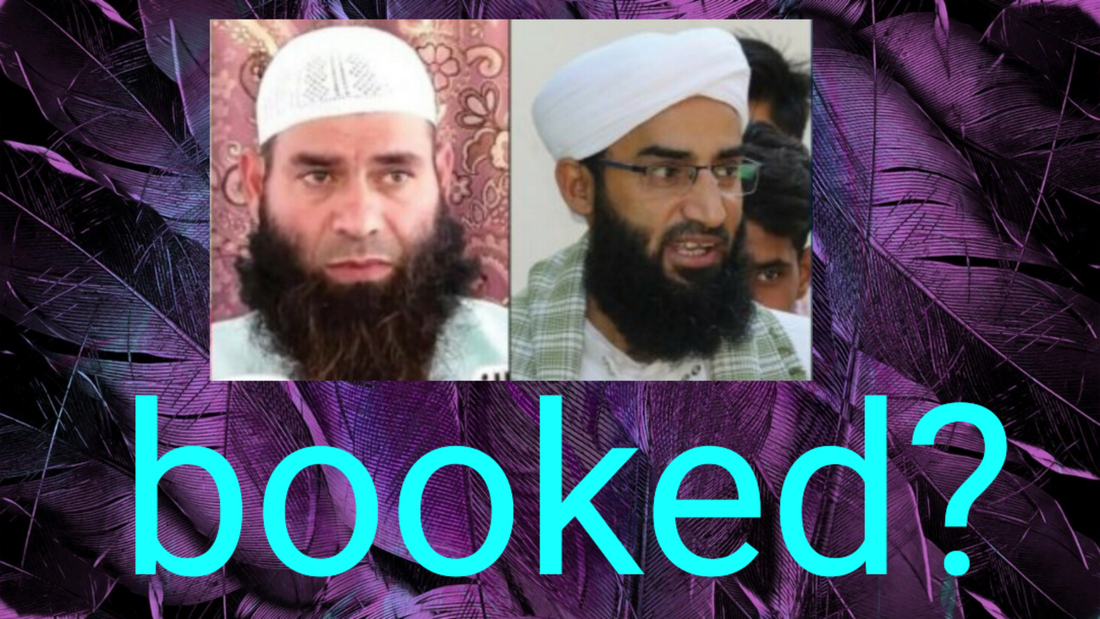Kashmir Clerics Abdul Rashid Dawoodi and Mushtaq Veeri Booked for Inflammatory Language
Understanding the Incident
Who are Abdul Rashid Dawoodi and Mushtaq Veeri?
Abdul Rashid Dawoodi and Mushtaq Veeri are well-known religious figures in Kashmir, each wielding significant influence over their respective communities. Dawoodi, a prominent cleric, is known for his spiritual teachings and has a considerable following. Veeri, another influential cleric, is recognized for his passionate sermons and strong stance on various socio-political issues.
What Happened in Veeri Village?
The incident in question took place in Veeri village, a serene locality in Kashmir. During a religious gathering, both clerics allegedly used inflammatory language that, according to police reports, had the potential to incite communal tension. This led to their booking under relevant sections of the law aimed at curbing hate speech and maintaining public order.

Hindu Guru Goyal Siddh Original Jatashankar Jadibooti Hatha Jodi: Discover the benefits of this powerful herb, known for bringing money and prosperity at home. No animal parts, only rare plant roots. Shop now to enhance your spiritual practices.
Legal and Social Implications
Legal Framework Governing Hate Speech
India has stringent laws designed to prevent hate speech and maintain communal harmony. The relevant legal provisions include sections of the Indian Penal Code (IPC) that criminalize actions and speech that can provoke violence or enmity between different groups. Booking Dawoodi and Veeri under these laws underscores the seriousness with which such matters are treated.
Community Reactions and Impact
The news of the clerics' booking has elicited varied reactions from the local community. Some support the action, emphasizing the need to maintain peace and prevent communal discord. Others, however, view it as an infringement on religious expression and a move that could exacerbate tensions. This dichotomy reflects the complex interplay of religion, law, and societal values in Kashmir.
Broader Context: Kashmir's Socio-Political Landscape
Historical Tensions
Kashmir has long been a flashpoint for socio-political tensions, rooted in historical, religious, and geopolitical factors. The region's history of conflict has often seen religious leaders playing pivotal roles in shaping public opinion and social dynamics.
The Role of Religious Leaders
In Kashmir, religious leaders like Dawoodi and Veeri hold considerable sway over their followers. Their words and actions can significantly influence public sentiment, making their responsibility to promote peace and harmony all the more critical.

The Role of Media
Media Coverage and Public Perception
The media plays a crucial role in shaping public perception of events like the one involving Dawoodi and Veeri. Coverage can amplify the gravity of the situation, potentially influencing both public opinion and official actions. In this case, media reports have highlighted the clerics' inflammatory language, thereby underscoring the importance of responsible religious discourse.
Balancing Sensationalism and Responsibility
While media coverage is essential, it must strike a balance between reporting facts and avoiding sensationalism that could further inflame tensions. Responsible journalism involves providing context and promoting understanding, rather than merely sensationalizing incidents for the sake of viewership.

Activated Chintamani Stone Pendant: Discover the powerful benefits of the Chintamani Stone with our Activated Chintamani Stone Pendant. Perfect for wish fulfillment and enhancing your spiritual journey. Shop now to bring positive changes to your life.
Efforts Towards Communal Harmony
Government Initiatives
The government has implemented various initiatives aimed at promoting communal harmony in Kashmir. These include educational programs, community dialogue initiatives, and strict enforcement of laws against hate speech and incitement.
Community-Based Efforts
Local communities have also taken steps to foster peace and understanding. Interfaith dialogues, cultural exchanges, and community policing are some of the grassroots efforts contributing to a more harmonious society.
Future Implications and Lessons Learned
Need for Responsible Leadership
The incident involving Dawoodi and Veeri highlights the critical need for responsible leadership. Religious leaders, given their influence, must be mindful of their words and actions, ensuring they promote peace rather than division.
Strengthening Legal and Social Frameworks
There is a need to strengthen both legal and social frameworks to better address and prevent incidents of hate speech. This includes not only stringent enforcement of existing laws but also fostering a culture of mutual respect and understanding.
Conclusion
The booking of Abdul Rashid Dawoodi and Mushtaq Veeri for inflammatory language in Veeri village underscores the delicate balance between freedom of expression and the need to maintain communal harmony. It serves as a reminder of the significant influence religious leaders hold and the responsibility that comes with it. Moving forward, it is essential for all stakeholders—government, media, religious leaders, and the community at large—to work collaboratively towards fostering an environment of peace, understanding, and mutual respect in Kashmir.
FAQs
- What led to the booking of Abdul Rashid Dawoodi and Mushtaq Veeri? The clerics were booked for using inflammatory language during a religious gathering in Veeri village, which police deemed capable of inciting communal tension.
- What laws govern hate speech in India? India has stringent laws under the Indian Penal Code (IPC) that criminalize actions and speech provoking violence or enmity between different groups.
- How has the community reacted to the incident? Reactions are mixed; some support the action to maintain peace, while others see it as an infringement on religious expression.
- What role do religious leaders play in Kashmir's socio-political landscape? Religious leaders in Kashmir have significant influence over

